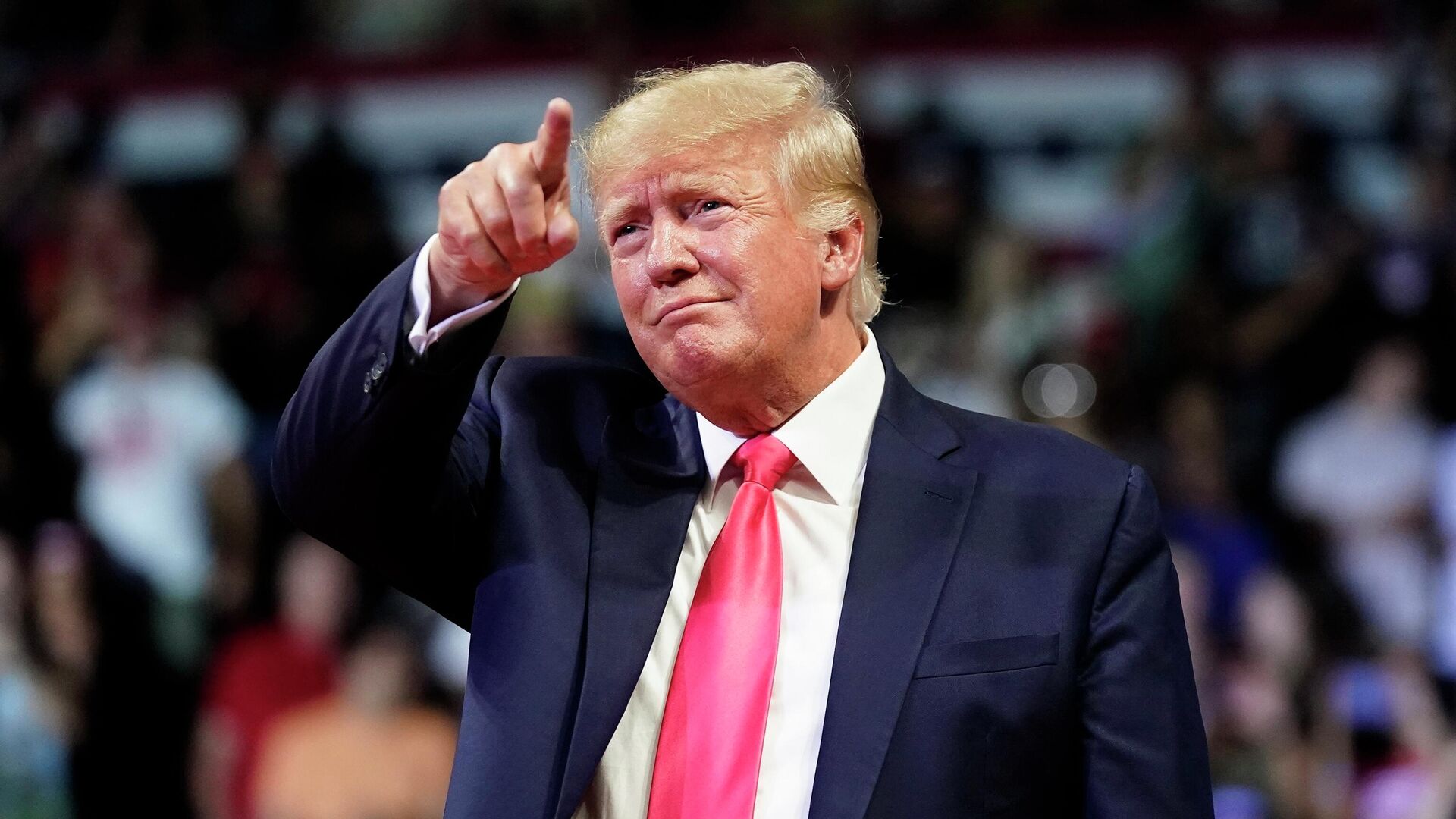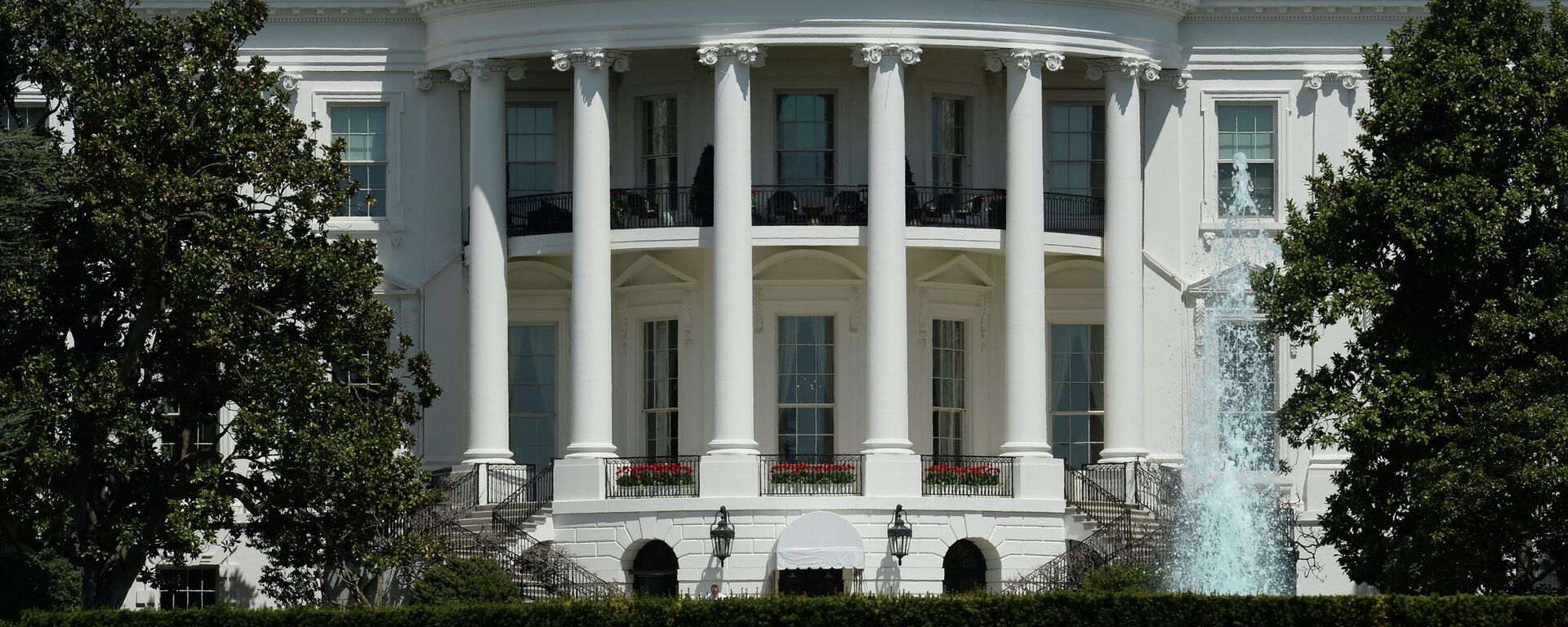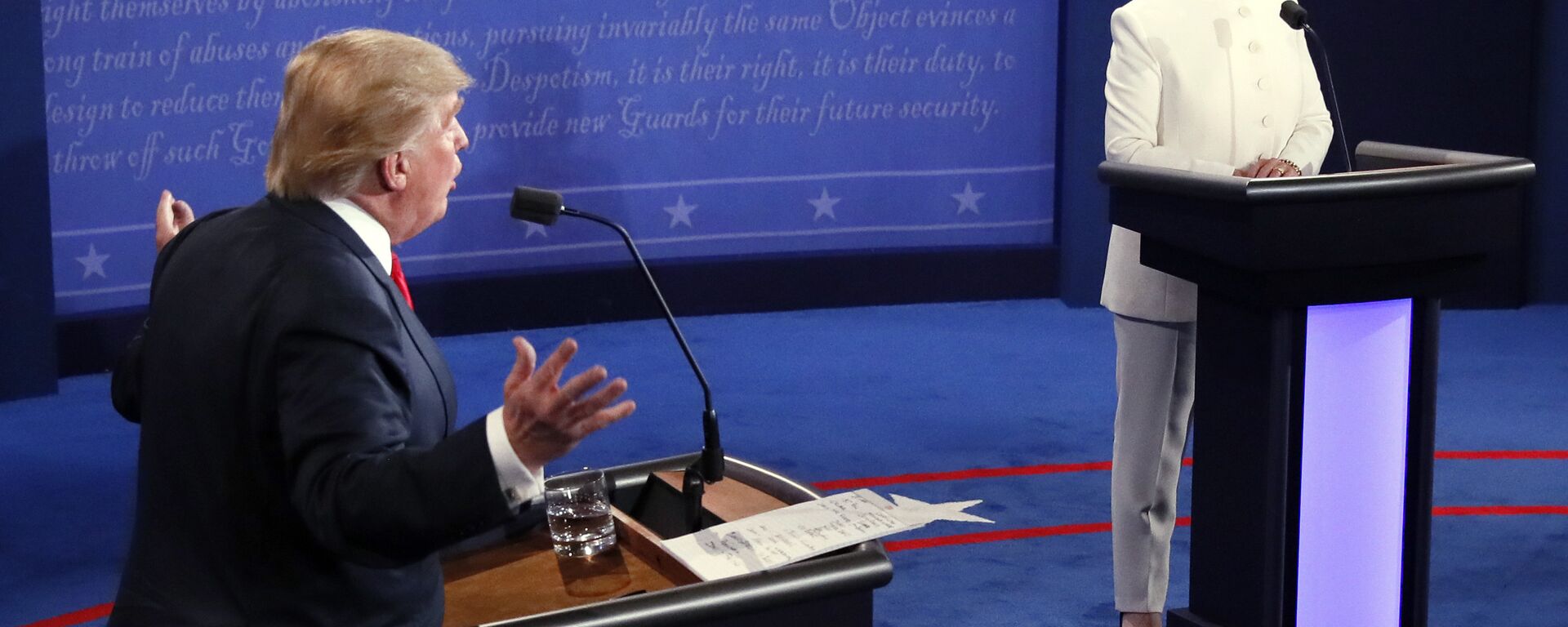FBI's Affidavit & Mar-a-Lago Raid: What If DOJ Case Against Trump is Big Nothing Burger…Again?

© AP Photo / Ross D. Franklin
Subscribe
On August 26, the Department of Justice (DOJ) released a heavily-redacted copy of its affidavit for the FBI raid on former President Donald Trump’s Mar-a-Lago premises in early August. However, the document provides more questions than answers, according to US legal observers.
The newly released affidavit, which was made public on Friday under the order of US Magistrate Judge Bruce Reinhart, has turned out to be heavily redacted. An accompanying government memo explaining the reasons for its redaction is also nearly entirely blacked-out. Both documents have been subjected to ridicule by netizens, with US news satire website Babylon Bee suggesting that the nation now risks suffering from a black ink shortage.
However, for retired FBI Assistant Director Kevin Brock the situation is no laughable matter: the FBI may regret their search of the former president's Florida estate, according to him.
During his appearance on "Just the News, Not Noise" television show, the former intelligence chief suggested that, first, the bureau shouldn't have raided Trump's Mar-a-Lago home but resolved the dispute in an attorney’s office; and, second, that federal agents appear to have failed to meet the probable cause standard to search the former president's premises.
The affidavit reveals that the DOJ kicked off a criminal investigation in February 2022, a month after the National Archives received 15 boxes of allegedly sensitive government materials from Mar-a-Lago. Having reviewed the documents, the FBI determined that "there is probable cause to believe that additional documents that contain classified [National Defense Information] or that there are presidential records subject to record retention requirements currently resid[ing] in the premises."
"There is also probable cause to believe that evidence of obstruction will be found at the premises," the FBI said in the affidavit.
According to the affidavit, the initial 15 boxes contained newspapers, magazines, printed news articles, photos, miscellaneous print-outs, notes, presidential correspondence, personal and post-presidential records and documents with classified markings.
However, the affidavit provided no new information with regard to documents seized from Mar-a-Lago during the FBI's raid on August 8.
"I will caveat all of this by saying we can only see what we can see, but the first thing that jumped out to me is that the probable cause statement focuses on the nature of the documents, and where they are," said Brock. "But it doesn't, at least in the un-redacted portion, address the main element of the criminal federal statutes that they cite."
While the DOJ suspected Trump of storing classified documents that he was not authorized to keep and that were illegal to possess, the affidavit did not call the documents in dispute classified but rather documents with classified markings, according to Brock.
The crux of the matter is that Trump and his former aide Kash Patel insist that all documents found in Mar-a-Lago were "declassified." Remarkably, the affidavit even acknowledged that the president has the power to declassify records, the ex-intelligence official said.
"From what I can see, that's not established in the probable cause," Brock emphasized. "There's an allusion to the argument from the Trump advocates that the former president was within his authority to declassify and to establish what a presidential record is."
Trump's lawyers also argue the heavily redacted affidavit "provides almost no information that would allow" them "to understand why the raid took place, or what was taken from [Trump's] home." The former president's legal team previously called upon the DOJ to allow an independent third party to review the documents which could be covered by client-attorney or executive privilege. In the aftermath of the affidavit's release, Trump lawyers stated that a third party is a must in the unfolding dispute.
Jonathan Turley, Shapiro professor of public interest law at George Washington University, who is closely following the case, also commented on the affidavit's release in an interview with Fox News:
"It's amazing how people can look at pages of blacked out lines and see this meaning," the law professor said. "It's sort of like a Rorschach inkblot test. People look at those blacked out lines and say, 'A criminal conviction is coming.' If you just read the un-redacted portions, it doesn't read to me like an affidavit I've seen in countless cases building towards a prosecution. It reads a lot like, 'We want our stuff back and you didn't give it to us'."
The professor clarified that he does not rule out that "what is underneath those blacked out lines is not a criminal case": "They make a very clear point here that the Trump team was told repeatedly that they could not house this material, that it was not secure, that they considered it classified, and that it was not turned over," he said, adding that the released material shed no light on this.
Unknowns in Trump's Case
Previously, Turley argued in his blog that the FBI's case against Trump remains "incomplete." For instance, it is still unclear whether the documents in question were declassified or not. Trump said that he had issued a "standing order" for declassification, however some documents from the January batch allegedly have non-crossed classification markings.
"If the documents were taken out of the White House on the last day of his presidency, the classification markings on the cover pages and internal headings might not have been crossed out," suggested Turley.
According to the FBI's warrant, Trump is being suspected of violating at least three sections of the Espionage Act, i.e. §§ 793, 2071, or 1519 of 18 U.S.C. The lawyer noted that sections 793 and 1519 require "intentional or knowing acts" while not requiring classified status as an element.
Then-FBI Director James Comey argued in 2016 that no prosecutor would bring Hillary Clinton's emailgate case under section 793 because her "criminal intent" could not be proven. Likewise, Trump's criminal intent has not been exposed by the bureau so far.
When it comes to Section 2071, it also requires a showing of not just negligence but that "an act is (…) done voluntarily and intentionally and with the specific intent to do something the law forbids," according to the lawyer.
If Trump believed that these materials were declassified and relied on legal advice to resolve any disagreements, "then prosecutors would combine an unprecedented legal case with a heavily contested factual record," Turley wrote.
Judging from what is known so far, the law professor assumed that the FBI's case against Trump pertaining to mishandling of government materials cannot prevent the former president from running again. He specifically addressed notions that section 2071 could potentially disqualify Trump from holding any office under the United States. According to him, even if Trump had been found guilty under section 2071, there would be constitutional hurdles to deprive him of the right to run again.
"There is ample reason to doubt that the presidency would be deemed barred by statute in this fashion," Turley wrote. "What would not be in doubt is how such a novel claim of disqualification would be received by millions of citizens already skeptical of the motivations of both the Biden administration and specifically the FBI."






